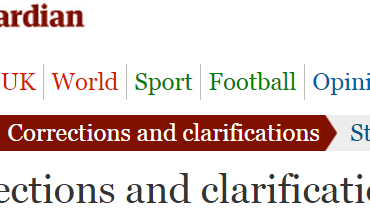Written by Chas Newkey-Burden at the blog OyVaGoy. (This originally appeared at The Jewish Chronicle)
“No gentile – and certainly no antisemite – should ever dictate to Jews how to guard against [antisemitism]”. – Chas Newkey-Burden
I think most of us will have heard the allegation that Jewish people “cry antisemitism” too readily. Or the implication that you are over-vigilant against another great flare-up of this ancient, ever-present hatred.
It is basically a suggestion that you cry wolf. And it is ridiculous for so many reasons.
Most fundamentally, I would personally dispute that Jewish people tend to cry wolf.
Although I’m a goy from a very goyish Berkshire village, I have a lot of contact with Jewish people, because of my interest in Israel and Jewish mysticism.
Most of that contact centres on food and chat. Talk usually drifts on to political matters. Along with our shawarma and hummus we chew over issues such as anti-Israel prejudice and antisemitism, and the increasing tendency of the two to merge.
As an outsider who has regular contact with the community, I’ve never personally known a Jewish person whom I would describe as over-vigilant regarding antisemitism or tending to cry wolf on it.
Such people probably exist somewhere but I’ve never met them. If anything, the opposite is often the case.
Which makes it all the more galling that it is the Jewish community as a whole that, of all minority groups, is most often accused of crying wolf.
Certain individuals from, say, the gay, black or Muslim communities are sometimes similarly accused. Occasionally with good reason; every community has its members who have lost themselves in an eternal quest for self-righteousness.
Their shrieking drown out the many sincere voices in those communities, who are able to distinguish between real and imagined prejudice.
Yet no other community faces the “crying wolf” accusation en masse as regularly as the Jews. This, despite the fact that the Jews are surely the least homogenous of people. The “two Jews, three opinions” gag did not emerge from nowhere.
But, you know what? I am not sure that “crying wolf” is the worst thing you could do. Here’s why.
If you are not to be over-vigilant against antisemitism, then you are left with only two options: to be less than vigilant, or to be just vigilant enough.
The idea that you would be seriously expected forever to be just vigilant enough, never to miss the mark by even a metaphorical millimetre, is ridiculous.
It would be just as ludicrous to expect such precision in other contexts. Do we genuinely expect a parent forever to be precisely vigilant enough over their children? We would hope they would be, but would not seriously expect it.
What even is “just vigilant enough”? What does it look like, and who decides where it rests? It would be no less bizarre to request of a widow that she grieves just the right amount.
So if we agree that getting it right every time is unrealistic, it means you have to be either over- or under-vigilant.
Well, as history shows, the price to be paid for being under-vigilant against Jew-hatred can be colossal.
That price dwarfs the price to be paid for being over-vigilant. Because it is unlikely that anyone making the “crying wolf” accusation would be doing so out of good faith.
No, the “crying wolf” allegation is almost exclusively made by those who do not take antisemitism seriously – or by those who take it so seriously that they to some degree endorse it.
After all, it is easy to criticise the manner in which someone is guarding a community against a wolf if you either don’t believe the wolf exists, or if you want it to devour the members of that community. The wolf is real. Arguably no gentile – and certainly no antisemite – should ever dictate to Jews how to guard against it.




